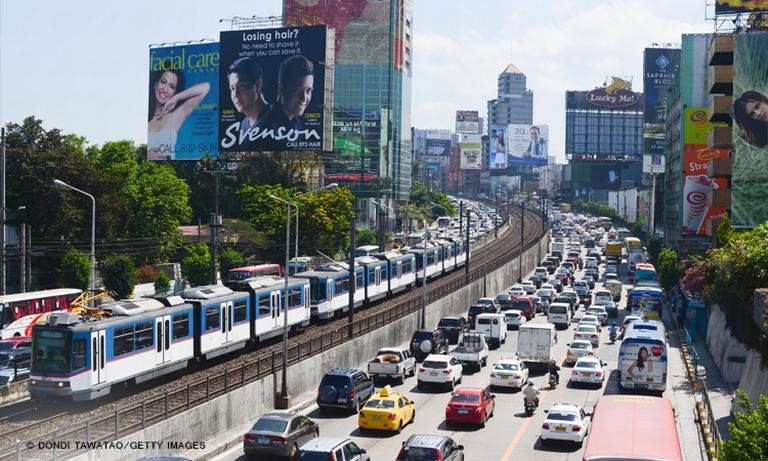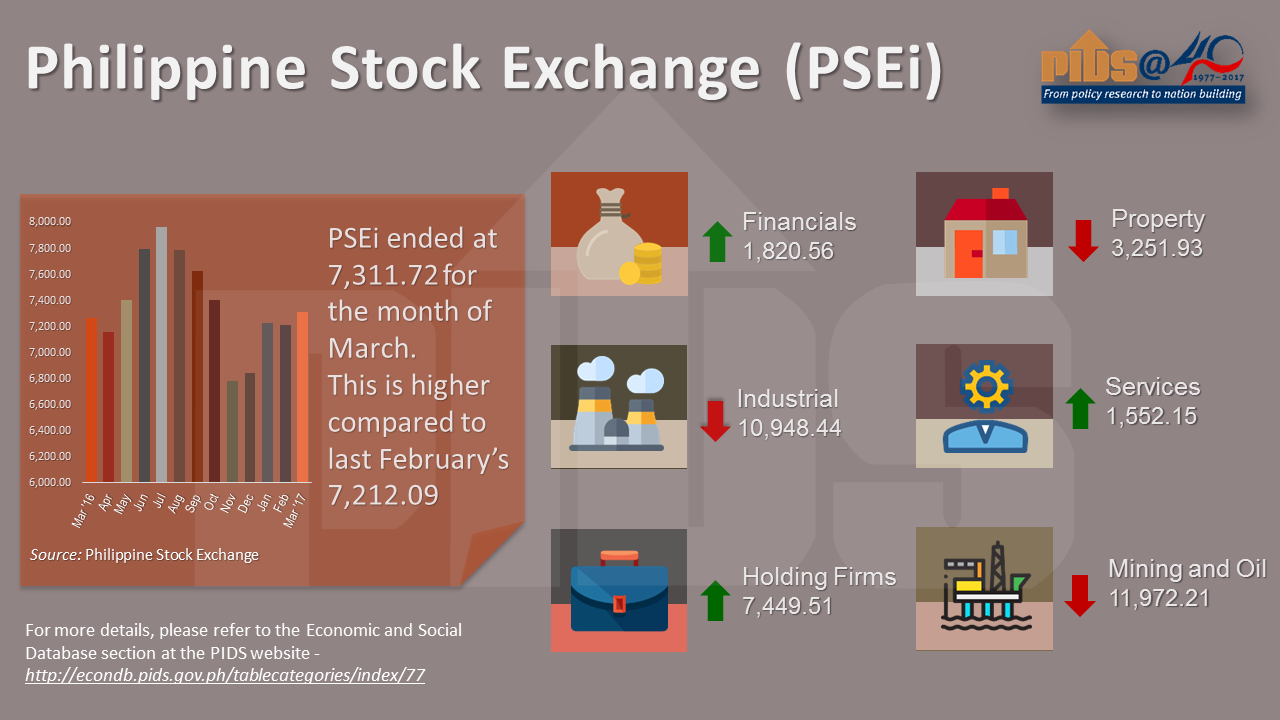Having trouble reading this email? View it in your browser. Not interested anymore? Unsubscribe Instantly. |
||||
 |
||||
|
||||
IN FOCUS: Agricultural Production Support
However, the sector has registered laggard growth for many years despite the huge public investments poured into it. In 2015, the government spent PHP 114 billion for agriculture, 32 percent higher than the expenditures in 2014, based on Philippine Statistics Authority data. Roehlano Briones, senior research fellow at the Philippine Institute for Development Studies (PIDS), attributes the sector’s perennial poor performance to the government’s failure to adopt the necessary reforms, such as the transition from mere farming to agribusiness. This can be achieved, he said, by shifting to high-value crops, which are more profitable than traditional crops. For a full agricultural transition, Briones also urges the government to capitalize on agricultural production support, such as infrastructure, credit and insurance, and research and development (R&D). Unfortunately, it is also in these aspects that the Philippine government usually falls short. PIDS President Gilbert Llanto, in a paper, noted that the lack of rural infrastructure can partly explain the decline in the country’s agricultural productivity. He underscored that greater mobility and access to markets and support services through infrastructure permit entry into new and possibly more profitable opportunities. He encouraged the government to invest in rural infrastructure, which has direct and indirect effects on the productivity of the agriculture sector. A modern and operational irrigation system is also vital in attaining agricultural progress. However, the country has ineffective and outdated irrigation facilities. In a study, PIDS Consultants Cristina David and Arlene Inocencio attributed these to “inadequate water supply, inappropriate designs, and difficulties in operation and maintenance”, which the government must address to improve the national irrigation system. In recent years, weather-related shocks have taken a huge toll on farmers’ livelihoods. The government provides agricultural insurance through the Philippine Crop Insurance Corporation (PCIC) to help farmers cope with natural hazards and pest infestations. However, a multisite impact evaluation project conducted by PIDS revealed that the program has a low uptake among farmers due to PCIC’s low presence at the grassroots and insufficient insurance coverage. According to PIDS Senior Research Fellow and Project Director Celia Reyes, because of the inadequate funding given to PCIC, the agency had to offer a small insurance cover to service more farmers. Inarguably, the Philippines’ agriculture sector still requires a great deal of comprehensive review and analyses, research-based interventions, innovations, and political will to make it more efficient, competitive, and resilient. You may access the following publications as well as related studies from the PIDS website and the SocioEconomic Research Portal for the Philippines. Simply type the relevant keywords in the Search box.
|
July 13, 2017, 9-5PM May 10, 2017, 2-4PM
The Philippine Journal of Development is a professional journal published by the Philippine Institute for Development Studies. It accepts papers that examine key issues in development and have strong relevance to policy development. As a multidisciplinary social science journal, it accepts papers in the fields of economics, political science, public administration, sociology, and other related disciplines. It considers papers that have strong policy implications on national or international concerns, particularly development issues in the Asia-Pacific region. CLICK HERE for the guidelines in the preparation of articles. Submissions and inquiries may be sent to PJD@mail.pids.gov.ph.
|
|||
POLICY NOTE
|
||||
|
||||
The huge volume of buses in Metro Manila that has contributed to the worsening traffic problems in its major thoroughfares like EDSA can still be fixed, according to a study published by state think tank Philippine Institute for Development Studies (PIDS). In a discussion paper, PIDS President Gilberto Llanto and Consultant Hope Gerochi said the best approach would be the “compete for the market” framework wherein bus operators will be consolidated into bus consortia, and only those that comply with the standards set by the government will be able to operate. READ MORE |
||||
In a world where everything is fast-paced because of advancement brought by technology, companies have to think about different ways to cope up. Fortunately, it does not always have to be costly. While research and development is crucial in maintaining competitiveness in the industry and sustaining economic growth, not all technological innovations are born out of it, according to a study published by state think thank Philippine Institute for Development Studies. READ MORE |
||||
|
||||
PHILIPPINE STOCK EXCHANGE INDEX Philippine Stock Exchange index ended at 7,311.72 for the month of March 2017. This is higher compared to last February's 7,212.09. To download the time-series data on Philippine Stock Exchange index, please click this link: http://econdb.pids.gov.ph/tablelists/table/643. Source of data: Philippine Stock Exchange |
||||
Need help? Have feedback? Feel free to contact us. © 2017 Philippine Institute for Development Studies.
|
||||
 Despite the government’s attempt to develop other industries as economic drivers, the agriculture sector remains central to the Philippine economy. According to the January 2016 Labor Force Survey, it is the second largest employer in the country, providing opportunities to 27 percent of Filipino workers. It also produces the bulk of the population’s food needs and provides the raw materials that fuel the rest of the economy.
Despite the government’s attempt to develop other industries as economic drivers, the agriculture sector remains central to the Philippine economy. According to the January 2016 Labor Force Survey, it is the second largest employer in the country, providing opportunities to 27 percent of Filipino workers. It also produces the bulk of the population’s food needs and provides the raw materials that fuel the rest of the economy. .jpg)
 Reform bus transport system to ease Metro Manila traffic woes—PIDS study
Reform bus transport system to ease Metro Manila traffic woes—PIDS study  Technological innovation can be affordable for PH—PIDS
Technological innovation can be affordable for PH—PIDS 

